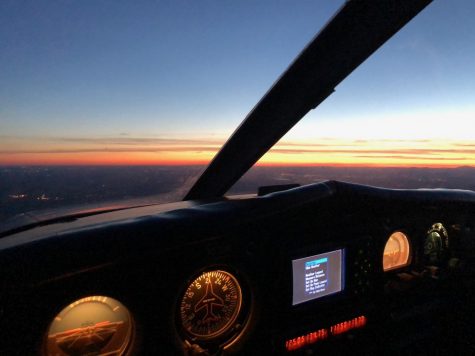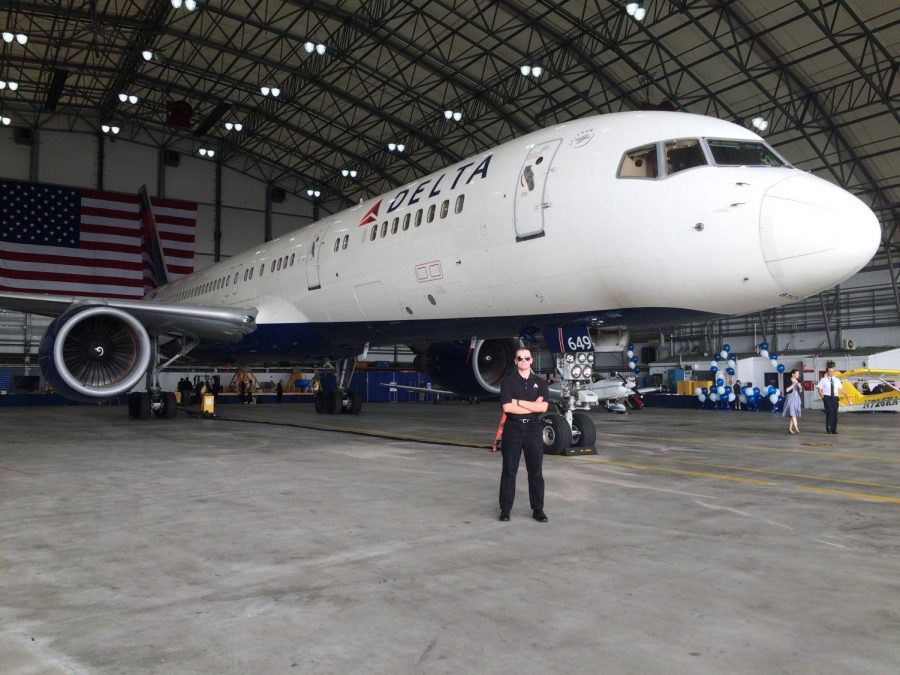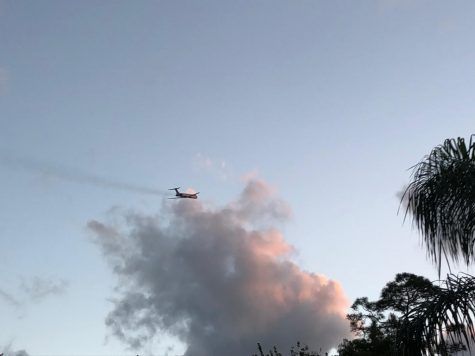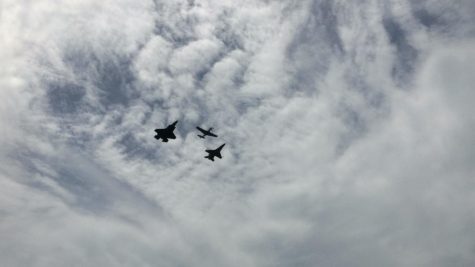If the Birds Stop Flying
May 20, 2019
Imagine our entire way of life, coming to a halt. The package you ordered on Amazon two days ago won’t arrive tonight but in another two weeks, the gift you sent your friend overseas won’t make it for another six weeks. This could be our new reality if today’s youth don’t become interested in aviation. Our reality may not be so grim, but it will definitely be more complicated. You may not realize it, but our daily lives depend on aviation and the aviators who operate the aircraft.
Boeing, one of the lead companies in the aviation industry, predicts we will need 637,000 new pilots to join the industry in the next twenty years. Much of this is due to the current generation of aviators closing in on the mandatory retirement age of 65, leaving open spots for new pilots to fill.
Although we may not think about it or see it, at any given time there are 500,000 people in the air. Along with people there are cargo, med flights, and other critical services. This high demand and low supply of pilots has had an enormous effect on both the airlines and the military.
With the airlines running out of pilots, benefits and pay have gone up quickly. Along with this, their recruiting methods are more cunning and sly. Larger airlines quickly snatch pilots from small and regional airlines, leaving them powerless and running a few out of business. The military is also feeling the shortage. Last year, the U.S. Air Force was over 1,000 fighter pilots low on its allotted amount of 3,750. This is due to pilots not re-commissioning, but instead, joining the airlines for better pay and services.
With the reduction of pilots worldwide, the Federal Aviation Administration (FAA), has begun considering rewriting the requirements to obtain a commercial license. Currently, the requirements to obtain a commercial license are 1,500 hours of flight experience, as well as several other ratings. The FAA has relaxed the 1,500 hours to just 1,000 for some students; however, some pilots fear this endangers the public. Pilots and other members of the aviation industry are stressing that it’s not the hours, but the experience that comes with the hours.
The FAA has also considered following the trend of other countries, allowing students to complete the majority of their training on a simulator. This has again been criticized by many in the industry, especially pilots who say, it’s real-world flying that matters. There are many situations and procedures you can practice in a simulator, but the best way to train pilots is in the real world, in a real airplane. However, Esteban Monteroso, co-owner of Avier flight school, has noticed the shortage and  says, “It’s about time.” He believes that the requirements to become a commercial pilot are too heavy and should be lightened.
says, “It’s about time.” He believes that the requirements to become a commercial pilot are too heavy and should be lightened.
With the current shortage and no apparent relief in the near future, there is no better time to become a pilot. The pay and benefits are going up, and they will continue to do so until the military and airlines can fill their slots. If you are interested in becoming a pilot, contact a local flight school.



